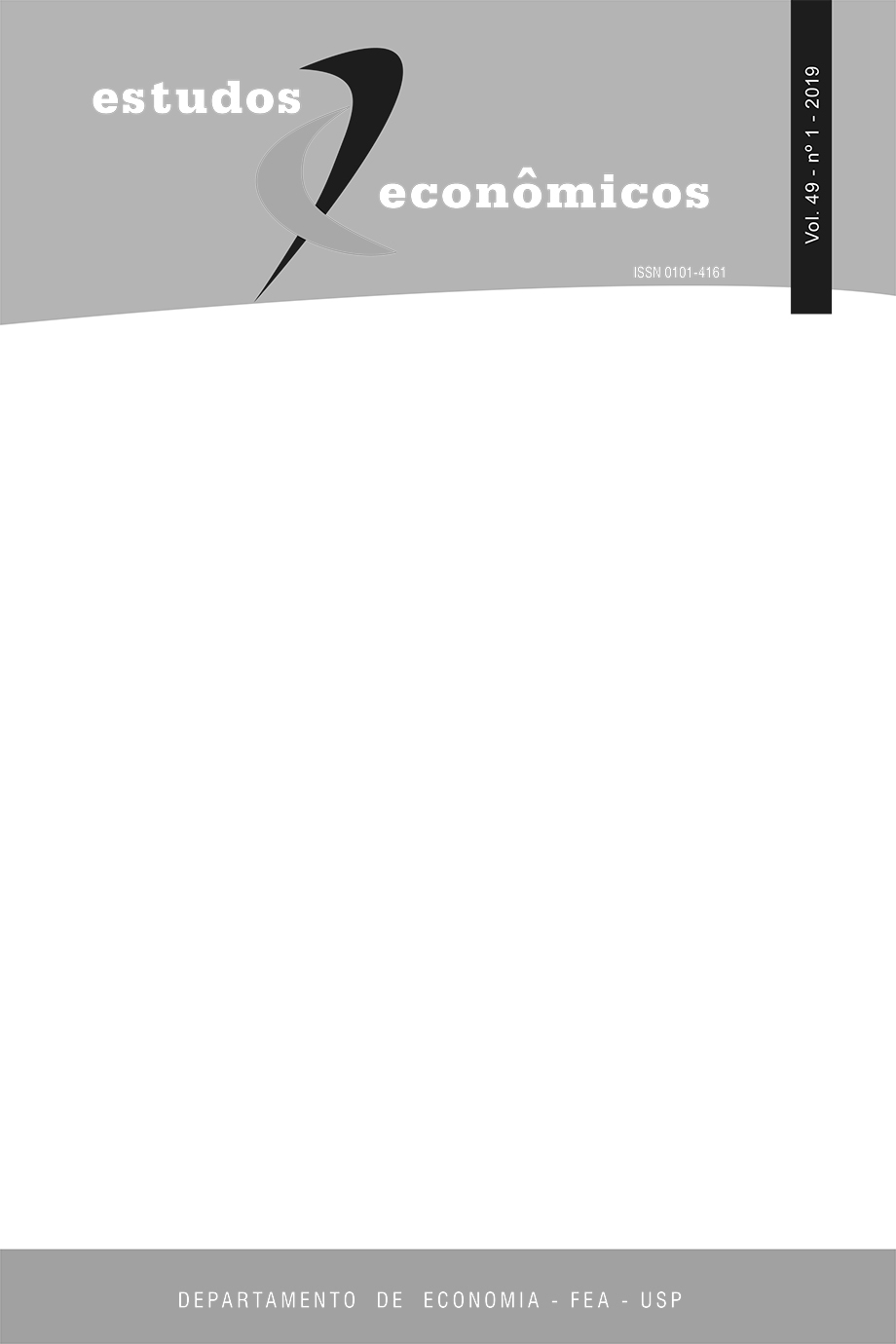Empirical evidence on the relation between fiscal credibility and Central Bank credibility: the Brazilian case
DOI:
https://doi.org/10.1590/0101-41614914garKeywords:
Fiscal policy, Monetary policy, credibilityAbstract
Since the early 1990s, several countries have adopted inflation targeting (IT). However, IT may not be sufficient to ensure fiscal discipline, and governments can still pursue irresponsible fiscal policies under IT. The adoption of irresponsible policies, which lead to a weak fiscal credibility, could undermine the credibility of the central bank. In the present study, we investigate whether a correlation between fiscal credibility and central bank credibility exists. The study contributes to the literature since it presents evidence on the relation between fiscal credibility and central bank credibility. The empirical analysis uses different econometric techniques (OLS, GMM and TOBIT). The findings suggest a positive relation between fiscal credibility and central bank credibility.
Downloads
References
Downloads
Published
Issue
Section
License
Copyright (c) 2019 Gabriel Caldas Montes, Ana Jordânia de Oliveira, Rodolfo Tomás da Fonseca Nicolay

This work is licensed under a Creative Commons Attribution-NonCommercial 4.0 International License.
By submitting an article, the author authorizes its publication and attests that it has not been submitted to any other journal. The original article is considered final. Articles selected for publication are proofread for grammatical and orthographic errors. The journal does not pay rights for published articles. The Institute of Economic Research from the School of Economics, Business and Accounting of the University of São Paulo (Instituto de Pesquisas Econômicas da Faculdade de Economia, Administração e Contabilidade da Universidade de São Paulo) owns the journal's copyright.





 Atualizado em 14/08/2025
Atualizado em 14/08/2025